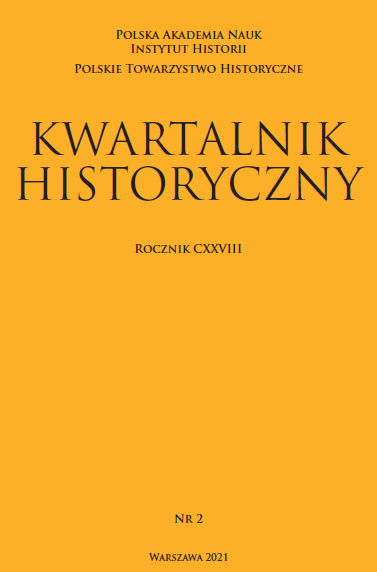Fenomen hazardu („hazardziku”) ulicznego w Drugiej Rzeczypospolitej. Casus województwa wileńskiego
The Phenomenon of Street Gambling in the Second Polish Republic. The Case of the Vilnius Voivodeship
Author(s): Mateusz RodakSubject(s): Cultural history, History of Law, Pre-WW I & WW I (1900 -1919), Interwar Period (1920 - 1939), Law on Economics, Fiscal Politics / Budgeting
Published by: Instytut Historii im. Tadeusza Manteuffla Polskiej Akademii Nauk
Keywords: gambling; Second Republic of Poland; Vilnius; Vilnius Voivodeship; law; fiscal law; lottery;
Summary/Abstract: In October 1927, a presidential decree entered into force that regulated the treatment rules of gambling addicts. It was the first evidence of a change in thinking about those who could not cope with addiction. In practice, the new regulations did not change much; nevertheless, the problem that had been ridiculed until then slowly became an element of discourse, also a medical one. In fear of the uncontrolled development of institutions offering the opportunity to participate in strictly gambling entertainment (lotteries, races, bookmakers’ bets, casinos, etc.), a lottery monopoly was introduced at the dawn of the Second Republic of Poland. Horse racing was also nationalised. At the same time, however, together with state legal forms of gambling, the gambling underground was operating in interwar Poland, both the ‘exclusive’ (roulette parlours) and the plebeian one. The article deals with the latter.
Journal: Kwartalnik Historyczny
- Issue Year: 128/2021
- Issue No: 2
- Page Range: 601-635
- Page Count: 35
- Language: Polish

